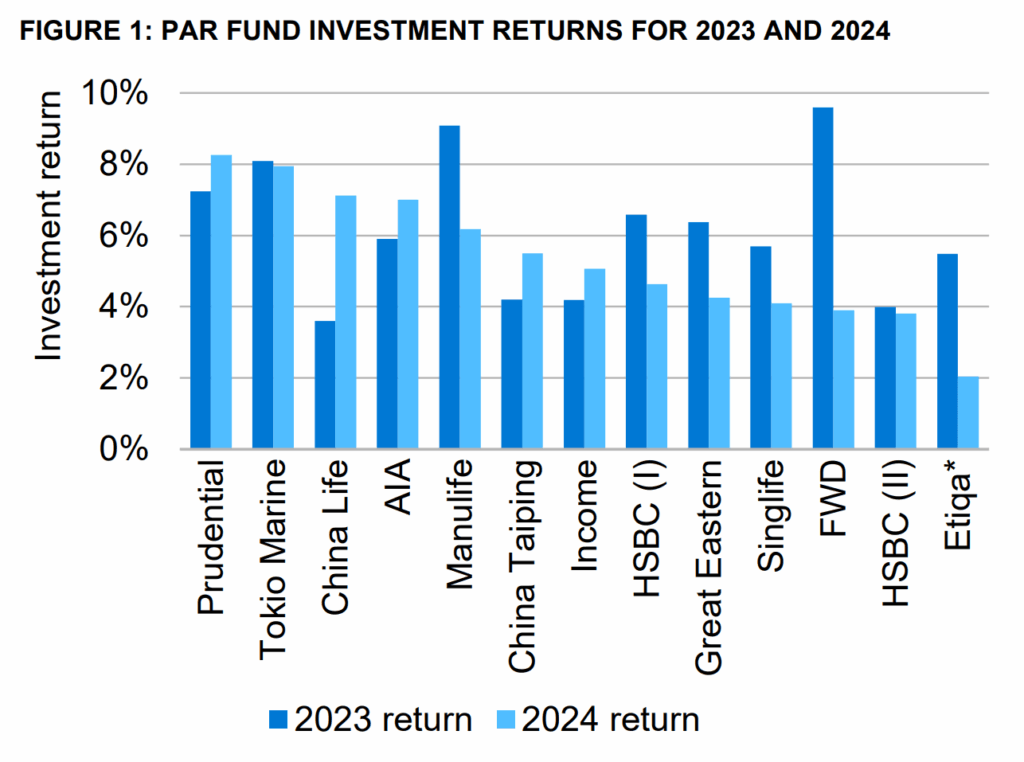Why Most Strategies Fail Before They Start (And How to Build One That Feels Right Every Step of the Way)
Ever found yourself tangled in that classic investment tug-of-war: should you be timing the market like a savvy trader, or owning the business like a patient craftsman? It’s the eternal investor’s dilemma that René Sellmann dives into with his good friend Victor, and trust me—it’s nothing short of a thrilling brain workout. These aren’t just your run-of-the-mill stock debates; it’s a clash of philosophies where deep, bottoms-up research meets the quest for a smooth, upward-sloping equity journey. Now, here’s the kicker—equity isn’t just about your total assets but what you truly own after debts, and how that number dances over time shows the real story of your investing prowess. If you’re anything like René, brace yourself for those inevitable drawdowns—they sting, but they’re part of the grind. This conversation unplugged some hardwired truths about compounding, survival, and the psychological battle we investors wrestle with behind closed screens and quiet mornings. Whether you’re a veteran whittling away at your craft or someone who’s stumbled through the market’s rollercoaster, this dialogue offers nuggets that’ll have you rethinking your own game plan—and maybe, just maybe, shaking your head at the market’s merciless arithmetic. Ready to peek behind the curtain and hear what it really takes to stick to your strategy when every fiber screams “sell”? Dive in and let the showdown between timing and owning unfold. LEARN MORE
This is probably the best thing that I read last week.
Timing the Market or Owning the Business? The Eternal Investor’s Dilemma
Rene Sellmann has a YouTube channel but keeps most of his Substack talking about what goes on in his personal portfolio.
In this article, Rene writes out the intellectual arguments he had with his friend Victor about the strong and weak points about their differing investment philosophies.
Rene has a more deep, bottoms up research, buy and hold, concentrated investment style while Victor is more concern about having a positive upward sloping equity path.
The equity is the value of your portfolio. We use equity instead of assets because you might have margin loans, or just loans if you are a trader. What we are interested to know is how your equity evolves over time. The slope, the drawdown when you plot out your equity path will show how good of an investor you are.
If your investment style is pretty similar to Rene, then you are bound to have your drawdowns.
This article may speak to you more if you are deeper in your craft of investing. Your good and poor investing experience may make you have open mental questions and you might find some answers in the conversation.
I would like to quote and note down some stuff that leaves a deeper impression on me. I might make some comments or not.
But I want to appreciate Rene because it is an effort to write this down.
“At scale,” he said, “drawdowns are not marks on a chart. They are years you don’t get back.” He tapped the napkin like it owed him money. “If the next bear is anything like the last true ones, most things go down together. Correlations climb. Liquidity vanishes. You sell what you can, not what you want. You can hold quality and still get your face ripped off.”
“I don’t have clients who need the money next quarter,” I said. “I have the luxury of time. The error I fear is selling a fantastic business with great long-term expected returns at 12x earnings – way too cheap! – only to watch it compound for a decade while I sit in cash, realizing I’m an idiot because I never re-entered at 9x earnings.”
“We’re not that different,” he said. “I care about long-term compounding as much as anyone. I just think compounding works best when you allow it to avoid amputations. A -50% is not the inverse of a +50%. You need a +100% just to break even. That arithmetic is cruel and silent. It waits decades to punish you.”
I asked him what he was actually willing to do, in real time, to sidestep. He said he would sell. Not trim. Not rebalance. Sell. “I don’t keep score in multiples,” he said. “I keep score in survival. If I smell forced sellers coming, I move to the other side of the table. If I’m wrong, I buy back. If I’m right, I buy back lower. The cost of being early is smaller than the cost of being stubborn.”
I said that I keep a running conversation in my head with three people: one who bought early, one who sold early, and one who never touched the account. The first one tends to be the hero in bull markets. The second writes the letters that survive in textbooks. The third is the dull one who ends up strangely rich at 70. Bull markets make the first two loud. Bear markets reveal exactly how much the third was paying attention.
“You remember how the ‘cheap’ names didn’t save anyone when the tide went out. If the indices halve, the portfolio that falls forty percent still feels like losing a year of your life.”
I told him I don’t worship low multiples.
1. I worship the engine that creates cash without needing fresh equity or wishful thinking.
2. If the engine is intact and the valuation isn’t cheap in my book, my first instinct is not to sell because other people are frightened or could be frightened.
3. My instinct is to re-underwrite. Confirm the unit economics.
4. Talk to a customer if I can. Look for the crack in the story that isn’t in the chart yet.
5. Invert. Always invert my grandfather taught me.
He shook his head. “You’re thinking like an owner. Markets are public for a reason. Public markets provide liquidity for you to exploit. And markets change behavior. Quickly. Not yours perhaps, but investors are human. If you steward outside capital, the market’s erratic behavior can affect you. You sleep less. You start rationalizing sales to stop the pain. When we discuss strategy, we forget the biology. Drawdowns hijack the nervous system. They break process and turn patience into a slogan people can’t live by. You can talk about your time horizon all you want. In practice, people capitulate. Everyone’s a long-term investor … until they start seeing red!”
I didn’t argue. I have the scars too. There was a year when I watched a position I knew cold get marked down daily for weeks. I stopped opening my brokerage app in public places because my face betrayed me. I remember how many calls I ignored. I remember the moment I almost became a tourist in my own process. Everyone writes about compounding as a math trick. It is also a psychological contest. The prize is not a rate of return. It is the right to keep your method under duress.
Victor uncapped the pen and drew two lines on the napkin. One was a steady upward slope with jagged, shallow dips. The other was stair-steps: flat, then a drop avoided, then a jump up from buying lower, then flat again. “This is me,” he said, pointing to the stairs. “I give up some of the smoothness and some of the trivial rallies to avoid getting trapped in a basement that takes half a decade to crawl out of.”
Victor countered that the opportunity cost during a crash is time. The time you forfeit to claw back to where you were. “If you step aside,” he said, “you buy back not only shares at a lower price but also years of extra compounding required if you missed the timming. Your financial ambitions? It will take much longer to reach them.”
He brought up old history, the way investors do when the present is too loud. Someone we both admired raised cash in the late 1960s and waited while the indices bled for years. Someone else kept buying because the businesses were genuinely cheap and still lost three quarters of their capital before any of it mattered. “Which one do you want to be,” he asked. I told him the version of me who will be able to look back and recognize himself. There is a form of success that requires you to become someone you dislike. It doesn’t look like success to me. If I train myself to bail at the first hint of weather, I will become excellent at bailing and very average at owning. If I train myself to sit still when the facts support it, I get better at the weird art of inaction. “The hard part,” Victor said, “is separating stoicism from stubbornness.”
He was right again. Principles and rationalizations wear the same clothes.
In the calm that followed, I asked him what he fears most.
He said he fears
1. living through a long, grinding market where prices go nowhere for years and years and cash becomes a more honest friend than equities.
2. giving back too much in an attempt to be brave.
3. being the last buyer out of habit.
I told him I fear the opposite:
1. creeping into tactical cleverness and waking up as someone who owns nothing long enough for it to matter.
2. the unforced error of selling a compounding machine to avoid feeling foolish.
3. spending my finite energy chasing a quarterly scoreboard that was never the game I wanted to play.
“Maybe we’re arguing about dosage,” he said. “How much of each pill you take. Some people can handle the medicine of volatility. Others need the sedative of cash. The danger is prescribing your own dosage to everyone else” I liked that.
Investing is personal in ways people pretend it isn’t. Strategies have temperaments baked in. Systems inherit human flaws. The dataset cannot tell you if you are the kind of person who will sleep at night through a -40% mark on a position you once described as your highest conviction. No backtest can simulate your spouse’s expression at breakfast. That is not an argument for doing whatever you feel. It’s an argument for aligning method with constitution so that you can do what you said you would do when conditions make you want to do the opposite.
“Great track records,” he said, “are usually built by sidestepping ruin. Good track records are built by holding quality. Good can become great if you survive long enough, but the leap is often made in a handful of decisions where you choose not to go over the cliff with the crowd.”
I countered that the leap can also be made by buying into a panic instead of sitting in the lobby with everyone else. The arithmetic of -30% is harsh. The arithmetic of buying a dollar of earning power for fifty cents and letting time do the work is also harsh to ignore.
He agreed. “We keep circling the same tree,” he said. “Avoid ruin. Own compounding. The disagreement is which one you prioritize when they seem to conflict.”
Victor asked me for a final word. “If I have to choose,” I said, “I choose to be the person who owns compounding engines through other people’s fear. I accept that this means I will sometimes look wrong, sometimes for longer than I’d like. I accept that a quote can insult me without hurting me if the earning power holds. I accept that cash is comfort but rarely a strategy for me. I am not indifferent to the cycle, but I will not make the cycle my religion. If my heroes have taught me anything, it’s that the market eventually pays owners who mind their businesses.”
He nodded and gave me his final word. “If I have to choose,” he said, “I choose to be the person who leaves the party with money in his pocket. I accept that this means I will sometimes leave too soon. I accept that I will look silly in momentum moments. I accept that I will buy back higher if I’m wrong. What I cannot accept is a hole so deep that the next three years of good decisions only repair what one bad decision destroyed. If my heroes have taught me anything, it’s that survival is the secret compounding”
I went home and wrote down the rules. Not hard rules.
Pilots’ checklists:
1. A promise to re-underwrite businesses as if no quotes existed.
2. A promise to study internals when the surface looked calm.
3. A promise to remember the geometry of losses without letting it scare me into cash as a default.
4. A promise to remember the distortions of gains without letting them seduce me into thinking I’m smarter than the tide.
5. A promise to diagnose my own nervous system before diagnosing the market.
If you want to trade these stocks I mentioned, you can open an account with Interactive Brokers. Interactive Brokers is the leading low-cost and efficient broker I use and trust to invest & trade my holdings in Singapore, the United States, London Stock Exchange and Hong Kong Stock Exchange. They allow you to trade stocks, ETFs, options, futures, forex, bonds and funds worldwide from a single integrated account.
You can read more about my thoughts about Interactive Brokers in this Interactive Brokers Deep Dive Series, starting with how to create & fund your Interactive Brokers account easily.


















Post Comment